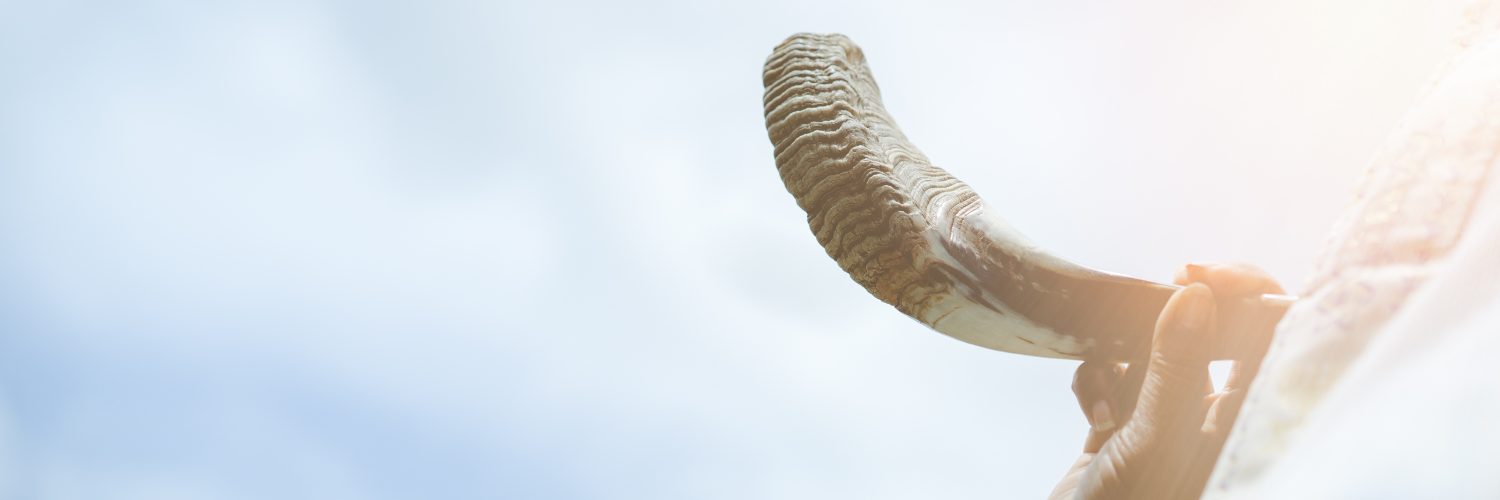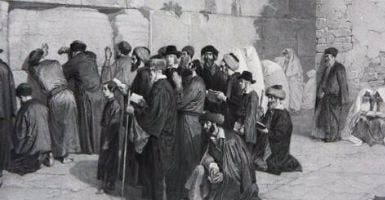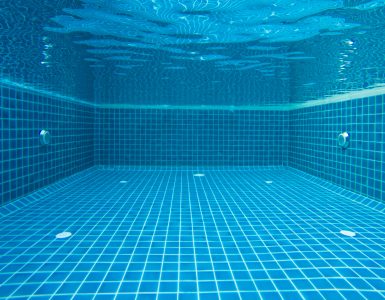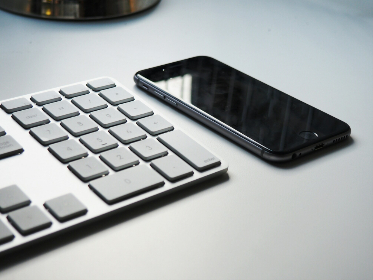Nitzavim – Rosh Hashana 5780
This week, with the Yom Tov of Rosh Hashana approaching, we will discuss a number of common Halachic questions that are relevant to medical professionals and patients regarding Musaf and Tekias Shofar.
- Musaf
Very often, sick people are unable to attend a Minyan and need to Daven b’Yechidus (alone). This can also be a challenge for doctors or nurses whose shifts begin in the early morning and only end during the afternoon, making it difficult to Daven with a Minyan. Some are able to arise early and Daven Shacharis with a Vasikin Minyan, but on days such as Rosh Hashana this is impractical, as the Tefilos are lengthy and extend well into the morning.
Those who need to Daven b’Yechidus on Rosh Hashana in the early hours of the morning may have an Halachic issue regarding the Tefila of Musaf. The Gemara in Avodah Zarah (4b) says that “a person shall not say the Tefila of Musaf of Rosh Hashana in the first three hours[1] of the day because (that time of the day) is appointed for judgment (during the first three hours of the day, Hashem sits and judges the world). Perhaps they will examine his conduct (the person who is Davening b’Yechidus) and will push him away.”
Why does a Tzibur Davening Musaf during the first three hours of the day not have to be concerned that those are hours of judgment? The Gemara explains that the Tzibur as a whole has numerous merits and therefore can withstand the piercing glare of Hashem’s judgment.
The Gemara then asks why there is only a concern regarding Musaf and not Shacharis and answers that during that time of the morning there is likely to also be a Tzibur Davening Shacharis. The merits of the Tzibur will protect even individuals who are Davening at the same time[2].
The Rishonim explain that the main concern regarding Davening Musaf in the first three hours of the day[3] is that it is a time of Hashem’s judgment, particularly on Rosh Hashana which is the Yom ha’Din[4]. Moreover, the Tefila of Musaf of Rosh Hashana contains Malchiyos, Zichronos and Shofros and each individual’s judgment comes to the fore when he recites those sections. He therefore should take particular care to avoid reciting them b’Yechidus at that time[5]. This Halacha is cited by the Shulchan Aruch (591:8).
Another important Halacha regarding the Tefila of Mussaf is that it should not be delayed past the first seven hours of the day. The Shulchan Aruch (O.C. 286:1) relates that while a person who Davens Musaf after this time has fulfilled his obligation, he is nevertheless deemed a “Poshea” (a sinner) .
To illustrate, this year, Netz haChamah on Rosh Hashana will be at approximately 6:30 a.m. in Eretz Yisrael. Three hours later, most doctors will be in the middle of their shifts and will not leave before seven hours have passed. This leaves them in a difficult position, as they seemingly cannot Daven Musaf before their shift (during the first three hours of the day) and shouldn’t wait until after their shift as they will have delayed the Tefila until after the seventh hour. What is their best course of action?
We asked this question of haGaon Rav Asher Weiss Shlit”a and he ruled that it would be preferable to Daven Musaf before the shift, even though it will be during the first three hours of the day. This is because the Halacha of avoiding Davening Musaf alone during the first three hours of the day is only a Din l’Chatchilah (and can therefore be set aside b’Sha’as haD’chak) whereas the Halacha of not delaying it until after seven hours is “mei’Ikar haDin” – the basic Halacha (even though one does fulfill his obligation if he delays it past that time).
In fact, it is said in the name one of the Gedolei haPoskim that a doctor who will be occupied in fulfilling a Mitzva (of Refua) during his shift on Rosh Hashana will have sufficient merit to survive the judgment, even if he Davens during the first three hours of the day.
Rav Asher also mentioned that according the Maharam Banet (Brachos 18a) the notion that “Hashem does not despise the prayers of the many” also applies when two people join together to Daven. While this is a tremendous Chidush, it is worthwhile for a doctor or patient to identify another person to Daven alongside him.
- Tekias Shofar
Another important Halacha that may be relevant to medical staff and patients alike is the prohibition to eat before fulfilling the Mitzva min haTorah of Tekias Shofar. From daybreak of Rosh Hashana it is forbidden to eat until the Mitzva of Tekias Shofar has been fulfilled (Tosefta, Shabbos 1:7) as the Chachamim were concerned that if a person would begin to eat, he might extend his meal and ultimately forget to perform the Mitzva. This Halacha is cited by the Shulchan Aruch (O.C. 652:2) regarding the Mitzva of Netilas Lulav, but the Mishna Berura (ad. loc. 8) clearly extends it to all Mitzvos min haTorah.
The Magen Avraham (ad. loc. 4) infers from the Shulchan Aruch that only “Achila” – a true “act of eating” – is forbidden, but “Te’ima” – a small taste of something (such as fruits, vegetables or a small amount of Mezonos products – see Shulchan Aruch, O.C. 232) – is permitted. Mateh Efrayim (588:1) therefore advises that somebody who is feeling weak and will be unable to focus on the Tekios or the Tefilos until he has eaten, should make Kiddush, eat a small amount of cake (so that the Kiddush will be “b’Makom Seuda”) and drink some tea or coffee. He does, however, say that he should do so in private so that others do not see him and act more leniently.
In many cases, doctors or patients are unable to reach a Shul in time for Tekias Shofar. If possible, they should arrange for somebody to blow the Shofar in the hospital ward, sounding at least the minimum Shiur of thirty blasts[6] in order to fulfill the Mitzva Min haTorah. That person may do so even if he has already fulfilled the Mitzva on that day and may also recite the Bracha on the Mitzva[7].
If it isn’t possible to make this arrangement, and they plan on hearing the Tekios later in the afternoon, they have a number of options as far as eating is concerned:
If they are able to arise early and begin to eat before half an hour before Alos haShachar (daybreak – which is at approximately 5:20 a.m. in Eretz Yisrael this year), that would be the most preferred course of action. Al Pi Kabala, however, it is better not to eat at all before Tekias Shofar.
If they are unable to do so (or if eating at that time will not give them enough energy later in the day), they should appoint a Shomer, whose job it is to remind them to hear the Tekios. Then, when they finish Davening, they may make Kiddush and eat a small amount (less than 50 grams) of Mezonos products.
All of the above applies to men whose have a Torah obligation to hear the Shofar. Women are exempt from this Mitzva as it is a Mitzvas Asei shehaZman Grama (Shulchan Aruch, Orach Chayim 589). However, the Poskim relate that the women accepted upon themselves to observe the Mitzva of Tekias Shofar and that doing so was considered to be a Neder (vow) to perform a Mitzva. For this reason, the Kaf ha’Chaim (589:34) rules that if a woman knows that in a given year she will not be able to fulfill the Mitzva, she should undergo Hataras Nedarim to release her of the vow.
Some Poskim maintain that since the women undertook to perform this Mitzva, they also may not eat before fulfilling the Mitzva. But what would be the Halacha b’Sha’as haD’chak, such as the circumstances described above of a (female) doctor or patient[8] who are unable to hear the Shofar until late in the afternoon? Would we say that there is more reason to be lenient and allow them to eat, as a woman’s obligation is only based on a voluntary acceptance of the Mitzva unlike a man’s whose is a Torah obligation?
The Eshel Avraham (592) rules that women should also endeavor never to eat before Tekias Shofar. Women who are unable to wait until after the Tekios have been completed in Shul should attempt to hear the Shofar earlier in the day before they eat.
However, the Chayei Adam (141:7) holds that since a woman is essentially exempt from the Mitzva of Tekias Shofar, she may eat before the Tekios. Although women have accepted upon themselves to fulfill the Mitzva, they probably did not do so in cases where it would cause distress. This is also the conclusion of the Kitzur Shulchan Aruch (129:19) and should be considered Halacha l’Ma’aseh.
[1] Throughout this essay, “hours” refers to Sha’os Zemaniyos that are calculated based on the interval between sunrise and sunset and will vary depending upon location and date.
[2] The Mishna Berura (591) adds that if the Tzibur Davens Shacharis during the first two hours of the morning, an individual cannot join them should try to Daven at the same time so that he may be protected by their merit.
[3] The Magen Avraham (591) points out that according to Tosfos, the reason one should not Daven Musaf at this time is because during the third hour of the day the kings of the nations of the world arise from their beds and bow down to the sun. This creates a “Charon Af” (anger) in the world and it is therefore not an opportune time to Daven. This would only be a concern during the third hour and not during the first two hours of the day. However, according to the other Rishonim (whose position is followed by the Shulchan Aruch and Mishna Berura) that the reason for this Halacha is that it is a time of Din, one should avoid Davening during all of the first three hours.
[4] The Mishna Berura (591:8) explains that while Hashem judges the world on every day, He only does so as a “Pekida b’Alma” – a mere glancing look at the world – and only for that particular day. On Rosh Hashana, He judges the world and decides what its fate will be for the entire year or perhaps for several years.
[5] The Ra’avad (s.v. u’Mafkid) explains that the judgment of Rosh Hashana is particularly grave as each person is judged as to whether he will live or die (as explained by the Gemara in Rosh Hashana 16). He therefore needs to entreat Hashem at length to merit positive outcome. An individual should, therefore, not Daven Musaf alone so that the Heavenly court not inspect his acts individually. However, on other days of the year, that are not specific days of judgment, a person may Daven Musaf alone during the first three hours.
[6] The thirty are three sets of “Tashrat” (Tekia, Shevarim, Terua, Tekia), three sets of “Tashat” (Tekia, Shevarim, Tekia) and three sets of “Tarat” (Tekia, Terua, Tekia). He needn’t sound the full 100 blasts (or 101 according to the Sefardic Minhag) that are sounded in Shul, though there are some who do so.
[7] This is because of the rule of “Arvus” – common responsibility. Each Jew is responsible to ensure that all of his fellow Jews are also able to fulfill Mitzvos. Therefore, a person may recite a Bracha when enabling another Jew to perform a Mitzva, even if he has already fulfilled that Mitzva himself.
[8] Obviously, if the patient is unable to wait until the afternoon to eat because of medical reasons, then she may certainly eat. The obligation upon women is certainly not so binding as to oblige a Choleh She’ein Bo Sakanah to exert herself for it.















Add comment